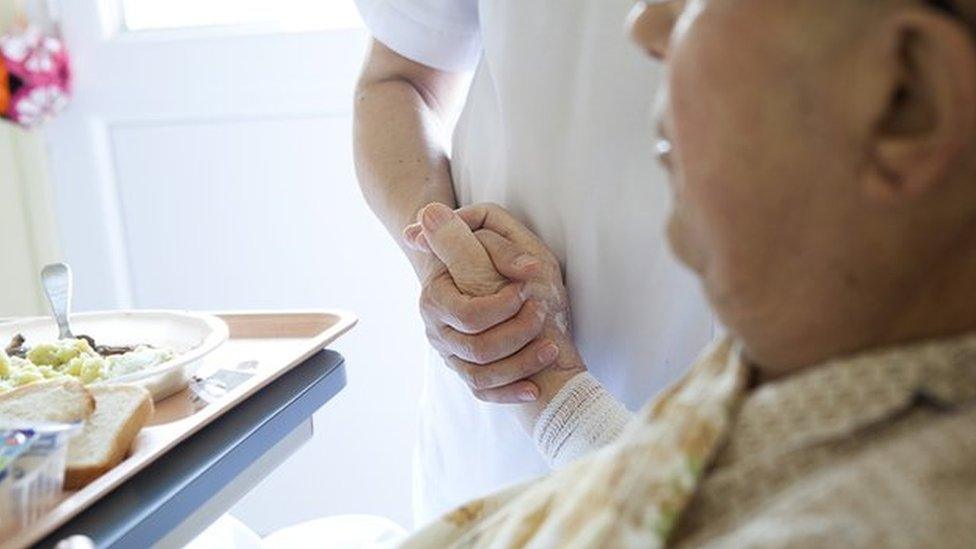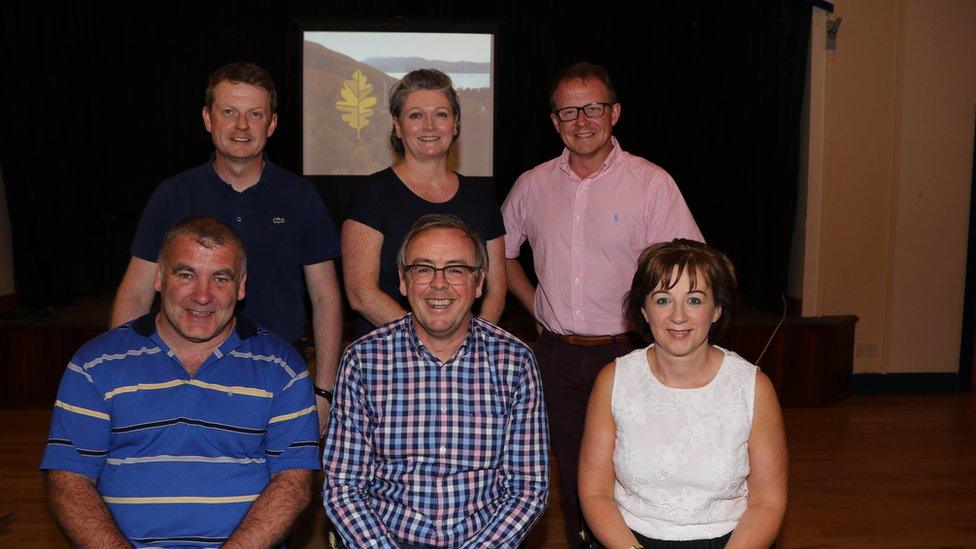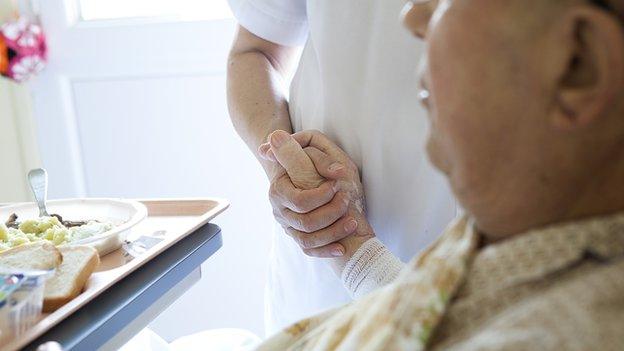Rostrevor community set plan for new end-of-life care service
- Published

Palliative care is about providing the right support at the end of life
A residents' group in Rostrevor, County Down, is aiming to set up a new community-run service for dying patients with a terminal illness.
It would see palliative care nurses working overnight in Rostrevor, Warrenpoint and Burren.
The committee chair, Dr Henry McLaughlin, said the initiative would complement existing services.
More than 100 people attended a meeting in Rostrevor on Sunday night to show support for it.
At present, patients who require palliative care in the Southern Trust area are supported by GPs, specialist nurses and carers - but only during the day time.
There is also a twilight district nurse service that operates until 23:00 BST, along with out-of-hours emergency services.
Marie Curie nurses operate a night-sitting service between 23:00 and 08:00 - but on a limited number of nights.
Under pressure
In 2015, a report analysing the UK's palliative care system described services as lacking and in need of a major overhaul.
Through the residents' committee, Dr McLaughlin has come up with a new model that would see qualified nurses, who already live in the Rostrevor area, working between the hours of 23:00 and 08:00 BST, to help patients who are most in need.
Dr McLaughlin, who has been a GP in the area for 30 years, explained that the health system is under so much pressure that palliative care patients are often having to wait too long for help.
"The aim of our proposal is that patients choosing to die at home should have the same access as patients in hospital," he said.

The Rostrevor residents' committee held a meeting on Sunday night to gauge support for the new end-of-life initiative
"The GP out-of-hours service is under such intense pressure that it can rarely respond rapidly to the need for pain relief and symptom control."
He added that the core focus behind the idea is to make palliative care services as local as possible, to reduce waiting times.
"When I started all GPs lived in the area that they worked in, and went on a rota at night, patients saw the GP really quickly," said Dr McLaughlin.
"Now there's an incredible shortage of GPs and Marie Curie nurses, who cover the entire Southern board, aim to see 88% of patients within two hours - that's quite a big ask.
"It's only going to be achieved by a community approach, where we'd see quicker response times of 20 to 30 minutes."

'Dignified death' - one family's story
It is almost a year exactly since Rostrevor woman, Roisin Franklin, lost her father, Patsy Tinnelly, to terminal cancer of the bile duct.
Her father was able to spend his last weeks at home and received palliative care services to help manage his pain.
She said the support her father received was excellent, but that services were limited during the night - and that the new community scheme could make a big difference to loved ones' final days,
"We were keen that daddy never had pain, and could have a dignified death," she told the BBC.
"To be able to have him at home feeling comfortable and relaxed - so many people want to do the same thing for their loved ones."
Mrs Franklin said she believes her father would have gotten behind the new initiative because he "knew the great benefits of it".

'Rewarding'
Dr McLaughlin said it is not certain that the proposed service will get off the ground, as there is a lot of paperwork and funding required before nurses can begin working in the area.
The group has to raise money, register as a charity and with the health regulator, recruit staff and plan out its workflow.
There is no timeframe in place yet, but the group said if the service does not come to fruition, any money raised will be donated to the Newry hospice.
Dr McLaughlin said even if his idea does not come to anything, he hopes "it shows to the powers that be that the system needs to change".
"If you're at home at night, in the dark, scared and in pain, possibly distressed with nausea and vomiting - those symptoms need to be relieved as soon as possible, it's not good enough to have to wait for two hours.
"Palliative care is really difficult (to work in), but it's one of the most rewarding things you can do, to help someone die at home."
- Published8 April 2015
